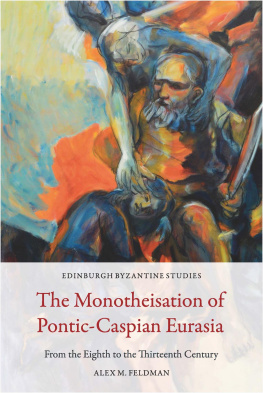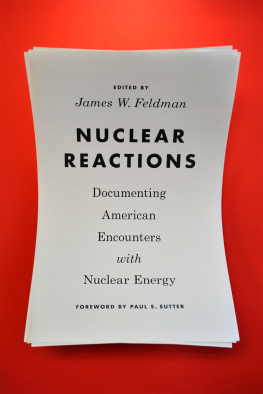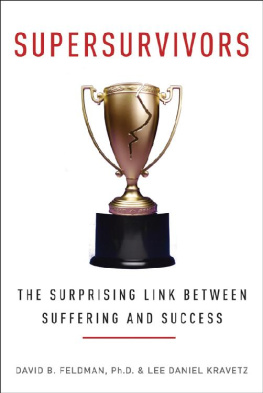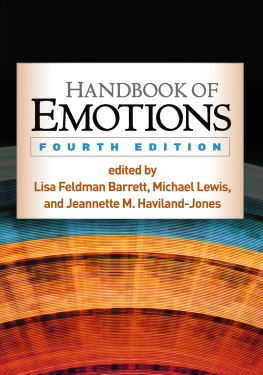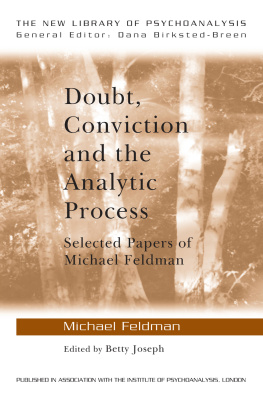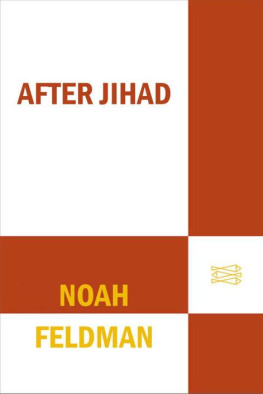
The Monotheisation of Pontic-Caspian Eurasia
Edinburgh Byzantine Studies
Innovative approaches to the medieval Eastern Roman empire and its neighbours
Edinburgh Byzantine Studies promotes new, theory-driven approaches to the empire commonly called Byzantium. The series looks at the literary, historical, material and visual remains of this long-living political order and its neighbours, often from a multi-disciplinary and/or cross-cultural vantage point. Its innovative readings highlight the connectivity of Byzantine culture as well as of Byzantine Studies.
Series Editors
Louise Blanke, The University of Edinburgh
Ivan Drpi, University of Pennsylvania
Niels Gaul, The University of Edinburgh
Alexander Riehle, Harvard University
Yannis Stouraitis, The University of Edinburgh
Alicia Walker, Bryn Mawr College
Books available in the series
Identities and Ideologies in the Medieval East Roman World
Yannis Stouraitis
The Monotheisation of Pontic-Caspian Eurasia: From the Eighth to the Thirteenth Century
Alex M. Feldman
Imperial Visions of Late Byzantium: Manuel II Palaiologos and Rhetoric in Purple
Florin Leonte
Books forthcoming
Saints, Relics and Identity in Medieval and Modern Caucasia: The Cult of Saints and the Body Politic
Nikoloz Aleksidze
Social Stratification in Late Byzantium
Christos Malatras
Visit the Edinburgh Byzantine Studies website at edinburghuniversitypress.com/series-edinburgh-byzantine-studies.html
The Monotheisation of Pontic-Caspian Eurasia
From the Eighth to the Thirteenth Century
Alex M. Feldman
EDINBURGH
University Press
Edinburgh University Press is one of the leading university presses in the UK. We publish academic books and journals in our selected subject areas across the humanities and social sciences, combining cutting-edge scholarship with high editorial and production values to produce academic works of lasting importance. For more information visit our website: edinburghuniversitypress.com
Alex M. Feldman, 2022
Cover image: Abraham (1972). Hugh Meisobov. Acrylic on canvas.
Cover design: www.deanta.com and Deborah Mesibov
Edinburgh University Press Ltd
The Tun Holyrood Road
12(2f) Jacksons Entry
Edinburgh EH8 8PJ
Typeset in 10.5/13 Warnock Pro by
IDSUK (DataConnection) Ltd, and
printed and bound in Great Britain
A CIP record for this book is available from the British Library
ISBN 978 1 4744 7810 6 (hardback)
ISBN 978 1 4744 7812 0 (webready PDF)
ISBN 978 1 4744 7813 7 (epub)
The right of Alex M. Feldman to be identified as the author of this work has been asserted in accordance with the Copyright, Designs and Patents Act 1988, and the Copyright and Related Rights Regulations 2003 (SI No. 2498).
Contents
Figures
A map of Eurasia with outlines of Pontic-Caspian Eurasia.
An image of the Khazar tamga, potentially one of the symbols of the n dynasty, which appears on certain Khazar dirhams.
Acknowledgements
Ad fontes! The battlecry of the historian.
For many years, I read the acknowledgements sections of history books as a sort of mild listing of various persons involved with the author who deserved thanks and praise: little more than a list of shout-outs. Yet acknowledgements are much more than about gratitude and commendation; they are about the very intricate process by which a book history itself is produced. In fact, the process of producing history depends on the contingent forces of bottom-up markets, top-down regulation, office politics and the puzzling cycles of history itself, and the product itself is sometimes capable of altering the very history it seeks to retell. Its easy to say that history is written by the winners this clich reveals little more than window dressing for a process of individual and collective memory which are as intertwined in the present as they are in the past. I suppose the production of history is as much about the personal stories of the men and women who produce it as it is about the stories they narrate. Hence, the true weight of acknowledgements.
You may not choose your family, but you can choose whether or not to internalise (or recognise) your family ethos within yourself after all, you are as much a product as you are a producer. My grandparents (Annette and Abraham Feldman; Eudice and Hugh Mesibov) were staunch members of the Greatest and the Silent Generations they came of age amidst the decadence of the 1920s (a decade which began with a worldwide pandemic and ended in an economic crash the reverse of the 2010s), the misery of the 1930s and the crucible of the 1940s. They inherited a world of chaos; they left it superior, if imperfect. After painting in the WPA, building ships, bridges and global governing structures, they became fashion designers, pharmacists, opera singers and art and art history professors the Western middle classes. Their modernist sensibilities left them comfortable with the prosaic mid-century Western dogmas (it all began with Greece and Rome, then the Middle Ages, the Renaissance, Columbus, Washington, etc.). Yet this all began to change as my parents generation (Baby Boomers) came of age, as challenging the modernist archetypes (hence, postmodernism) became fashionable and some questioned whether Western civilisation itself even exists (it does). My grandmother Eudice Mesibov even left her career singing Bizets Carmen in Marshall-planned post-war European opera halls to write a doctorate arguing that the second commandment was not always taken seriously. It was a great work of art history and it also revealed something else. By the time I noticed it, the last bastions of traditional Western civilisational dogma, a tiny, self-reproducing caste, preserved the product at all costs.
The story of this story (the meta-story?) commenced in the autumn of 2010, when I began my first Greek class at Roger Williams University of Rhode Island. Like many post-industrialised Western universities (specifically the liberal arts kind) in the 2010s, History, Classics, Philosophy and all the social sciences (or humanities) were haemorrhaging students, and therefore funding, since few parents allowed for such extravagance after 2008s Big Short. Production and consumption had become the domain of economists, not historians. I was fortunate to have parents who approved such pedagogical indulgence, but everywhere were the signs of unavoidable unravelling: economics, finance, law and business departments were ballooning with money and students were taking out exorbitant loans for vocational degrees in the faint hope that they might come in handy. Still, our consistently 15-minutes-late-for-every-class professor of Greek discouraged us from pursuing Classics as a career there wasnt enough room left in the bastion and most of us would need to scrape and scrounge producing or selling something else in the corporate world as the waters rose. Returning to him after living in Athens and witnessing the turmoil caused by uncontrolled financial markets, I was told that nothing written in Greek after the era of St Augustine of Hippo and St John Chrysostom was worth reading the Classical canon ended in the fifth century. It was his bastion and he was the department head, so that was that. I suppose his words were one of the earliest reasons for the book youre holding.
If the villain plays a major role, luck is indispensable. This project was conceived in the final stages of my MRes at the University of Birmingham (UoB) in 2013, where I had been writing a tedious argument against the conventional story of Vladimirs baptism in 9879 in the Crimean city of Cherson. At the time, I was reading Paul Stephensons
Next page
